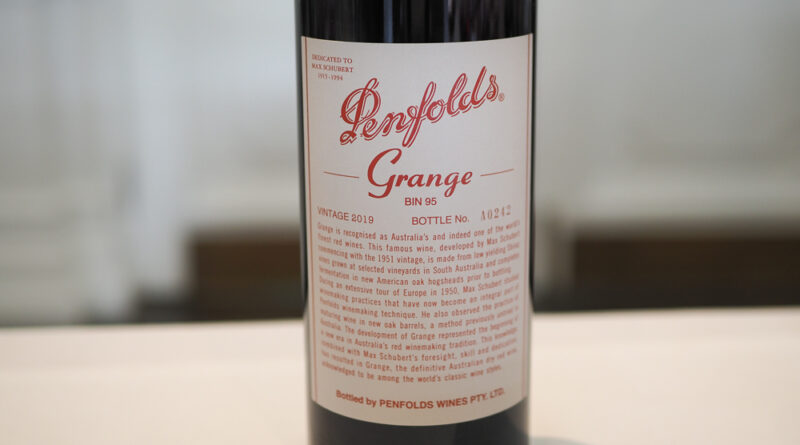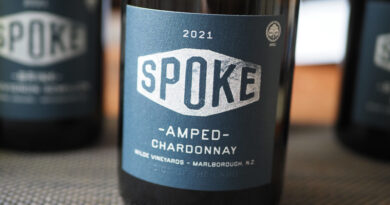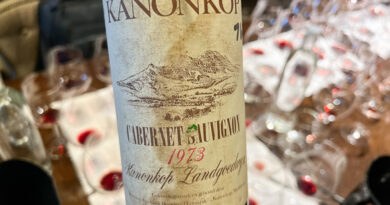Some wines are beyond criticism
I’m not primarily a wine critic. What I mean is, I don’t see my primary role as a wine communicator as assessing all the wines in a region and scoring them, which is something a wine critic does almost exclusively.
Robert Parker may not have been the first wine critic, but he certainly played the key role in making wine criticism a thing. Back when he started the world of fine wines – the sorts of wines that it’s sensible for critics to score – was much smaller, and he could cover most of the fine wine landscape alone. But soon there were big gaps in the market and he hired other critics to join his team, such as Pierre Rovani (to help with Burgundy, where Parker had really struggled) and Jay Miller (who covered Argentina and Oregon among others). The team grew, but then competitor organizations also martialled their own teams. Now it’s quite a crowded field.
I do score wines, and I taste a lot of wines each year, but I won’t go to a region and taste hundreds of wines a day in a hotel room. I’ll use the wisdom of others to guide me to who might be more interesting, and I’ll visit and taste with some newcomers or off the radar producers, or people who reach out to me (if someone knows who I am and what I do, and still wants me to come and taste, the wines may well be worth tasting).
But there’s an interesting thing here. Some wines are beyond criticism. They have become so famous and so celebrated, that there’s little point in reviewing them critically. And if you taste them and don’t like them very much, it’s probably best to stay quiet. Mostly these super-famous wines are famous for a reason: they are very good. If you tasted them and gave a low score, then there’s a chance you made an error, or you had a bad bottle. Best not to publicise that. And if you tasted the wine and it wasn’t good, and you were right, and it wasn’t a bad bottle, then only you can lose if you publish a negative note. You will come across as someone who has bad taste, except to the (presumably very few) who share your opinion.
Let’s give an example. If you taste the latest release of Penfolds Grange and give it 92/100, because you think it is well made, but perhaps over-ripe and lacking definition, then you probably won’t be first on the invite list to taste it again (and it’s unlikely you will be able to buy it yourself for a review because it is wildly expensive), and a lot of people will disbelieve you. Scoring Grange – especially in Australia, the land of some very high scores – begins about 97 in a bad vintage but mostly hovers around 99 or 100. Go below 95 and you will be on your own, and no one will give you credibility.
Another: the first growths of the Médoc, tasted en primeur. First, for most of the fancy Bordeaux Châteaux, the only way to taste during primeur week is to go and visit them, where [if you are invited] you will get the red carpet treatment, with perhaps a back vintage for context, a special printed tasting book, and a nice pencil. The selected barrel sample will no doubt taste excellent, and the only appropriate score in a good vintage is 98-100, and in a lesser vintage maybe 96-98. Go any lower and it is you who will look out of step, because you will be. These wines are so famous they can’t score lower. It will never happen.
For the same reason, the new vintages of the various icon Champagnes from the big houses will be tasted at a stage-managed event, which might even involve travel to another country. The critics are honest and want to do their best job assessing these wines, but the houses know that it works in their favour to stage-manage the experience. There is a very narrow range of acceptable scores for these top wines, and if you are a Champagne specialist you need continued access to them. It’s a difficult position to be in if you don’t think that some of the wines merit top scores: it’s another place where it pays to be positive or not say anything at all.
The very top wines are treated with reverence. The last thing the proprietors or owners of ‘A’ list wines is for them to be tasted blind in a long line-up of wines. Stage managing the experience preserves the mystery. By all means taste these wines (it’s so interesting to benchmark) and by all means be critical, but if your score is low, then you will gain nothing publishing your results, your readers will gain nothing either, and you could end up never getting the chance to taste these sorts of wines again.




